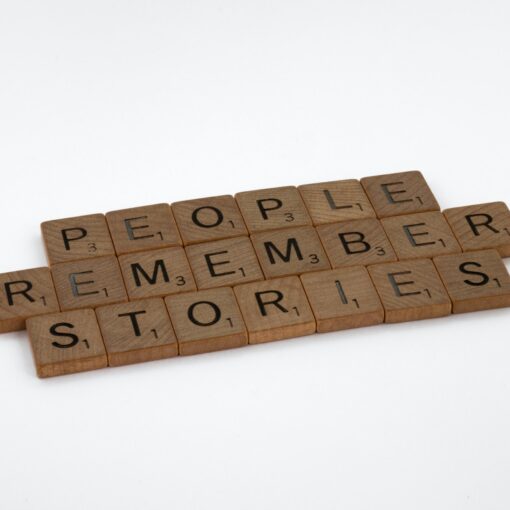Page Menu
The first step to improving your memory is to recall that it's not just a function of age. If you're over the age of 50-years-old, it's a common misconception that you're going to experience a dramatic drop in memory as part of the natural aging process. In reality, there are many factors that can affect your brain and memory performance.
Key Concepts and Top Takeaways
– Practice mindfulness to enhance focus and retention.
– Use mnemonic devices to aid memory recall effectively.
– Break information into smaller chunks for easier memorization.
– Stay organized with lists and planners to reduce cognitive load.
– Get regular physical exercise to boost brain health.
– Ensure adequate sleep each night for optimal memory function.
– Maintain a balanced diet rich in antioxidants and omega-3s.
– Challenge your brain with puzzles or learning new skills.
– Limit multitasking to improve concentration on tasks at hand.
– Stay socially active to stimulate mental engagement and memory.
Please Note: This post may contain affiliate links. If you click one of them, we may receive a commission at no extra cost to you. As an Amazon Associate, I earn from qualifying purchases.

The first thing you can do to improve your memory is to reduce the number of distractions around you. If you are studying, try to study in an area with as few distractions as possible. Turn off any screens or mobile devices, and remove any clutter. The second thing you can do is to take breaks, especially if you are feeling overwhelmed or frustrated. Lastly, it is important to keep a positive attitude towards whatever task is at hand.
The brain is an incredibly complex organ that has the ability to process information in milliseconds. However, like any other organism, it needs nourishment to grow and carry out its functions. One of the most important nutrients for the brain is Omega-3 fatty acids; but these are difficult to come by in today's society. Luckily, there are many tricks and tips you can implement in order to improve your memory.
One of the most essential talents to develop is memory. Observing and learning new things is pointless if you can't retain the knowledge for an extended period of time. This is particularly true for the elderly, whose loved ones are frustrated and sad as a result of dementia. You can discover some useful techniques for exercising your memory from the information in this article.
Put A Reminder Where You Are Likely To Trip Over It
 The human mind is an incredible thing. The same person that remembers to take their keys home with them after work also forgets to call their mother on her birthday. How many times have you left the house for school or work, forgetting your coffee? This article aims to help people remember to do the things they need to do before they forget about it again.
The human mind is an incredible thing. The same person that remembers to take their keys home with them after work also forgets to call their mother on her birthday. How many times have you left the house for school or work, forgetting your coffee? This article aims to help people remember to do the things they need to do before they forget about it again.
The days of the Post-It Notes and to-do lists on your desk can be a thing of the past. They may work for some, but they often end up as a waste of time and space. The question is: where do you need to put your reminders? An easy way to stay on track with tasks is to place them in places where you are likely to trip over them.
It is very common for people to put reminders on their phone or their desk to do certain tasks, but what about the floor? It is the most likely place that you are going to trip over. Make sure to put a reminder where you are most likely going to see it!
To remember things like turning off the water, put a reminder item in a location where you are likely to trip over it! Put your garden gloves in the kitchen sink or any other odd location if you have left the sprinklers running for half an hour while you go inside to dine. This will serve as a reminder to switch off the water!
Working With People To Improve Your Memory
 Do you know someone who finds it difficult to remember things? Maybe they're not actively trying to forget things, but they're just not able to recall them like the rest of us. There are a lot of ways that we can help people work with their memory, and one way is to get them into a routine that will help them remember important dates and plans.
Do you know someone who finds it difficult to remember things? Maybe they're not actively trying to forget things, but they're just not able to recall them like the rest of us. There are a lot of ways that we can help people work with their memory, and one way is to get them into a routine that will help them remember important dates and plans.
There are many ways to improve your memory. One of the easiest is to work with people who can help you remember things or provide you with new information that will later be useful.
It's not uncommon to experience some difficulties with memory as we grow older. Memory loss is more prevalent among people over the age of 50, but it can happen sooner or later, depending on your lifestyle and what you do for a living. People struggle with different types of memory loss; short-term, long-term, and cognitive (mental) abilities can all suffer. This leaves many wondering how they should approach the inevitable decline in their mental abilities.
If you want to improve your memory, try working with people and collaborating on ideas with them. When you do this, your brain fires differently than when you work alone on anything. Try bouncing ideas off of people to observe how you start to think differently.
Eat More Fruits And Veggies To Help Your Memory
 It’s no surprise that eating fruits and veggies can help to maintain your weight. But did you know that eating more produce also helps your memory? That's right, according to a new study presented at the American Heart Association's recent annual meeting, eating a diet rich in fruits and vegetables may boost cognitive function and ward off dementia later in life. Researchers found that those who ate more of these foods had a slower rate of cognitive decline as they aged. What does this tell us?
It’s no surprise that eating fruits and veggies can help to maintain your weight. But did you know that eating more produce also helps your memory? That's right, according to a new study presented at the American Heart Association's recent annual meeting, eating a diet rich in fruits and vegetables may boost cognitive function and ward off dementia later in life. Researchers found that those who ate more of these foods had a slower rate of cognitive decline as they aged. What does this tell us?
Achieving your daily recommended amount of fruits and vegetables has never been easier. Whether you choose to go grocery shopping, or order food online, there is an abundance of healthy options available to you. Eating more vegetables will help keep your mind sharp as it can reduce inflammation, reduce stress hormones, and detoxify the body.
It is true that eating certain foods can help improve your memory, even if you are not experiencing memory problems at the moment. One of these foods is fruits and vegetables. A diet high in fruits and vegetables can help your brain stay healthy, which results in improved mental function. Though it may be tempting to try supplements or drugs to improve your memory, consuming a healthy diet is the best way to support brain health.
Eat more fruits and veggies to help your memory. Fresh fruit is high in antioxidants, which have been proven to help prevent brain cell damage. Consume brightly colored fruits and vegetables such as broccoli, apricots, bell peppers, and blueberries, which contain the greatest antioxidant contents.
Make Sure Your Diet Includes Omega-3 Fatty Acids To Help Your Memory
 Everyone knows that a diet rich in omega-3 fatty acids is good for the heart and other organs like the kidneys and liver. But did you know that omega-3s also help improve your memory and brain function? A study published in the Journal of Neurology, Neurosurgery and Psychiatry found that those who consumed higher doses of these essential fatty acids were less likely to develop Alzheimer's Disease or dementia.
Everyone knows that a diet rich in omega-3 fatty acids is good for the heart and other organs like the kidneys and liver. But did you know that omega-3s also help improve your memory and brain function? A study published in the Journal of Neurology, Neurosurgery and Psychiatry found that those who consumed higher doses of these essential fatty acids were less likely to develop Alzheimer's Disease or dementia.
Omega-3 fatty acids are a type of fat found in foods such as fish, a variety of nuts, seeds, and avocados. These fatty acids have been linked to numerous health benefits, including helping memory performance. Eating these omega-3s can help improve cognitive function, enhance brain development in children, and may even contribute to preventing Alzheimer's disease. In order to reap the benefits of these fats, experts recommend that people consume between 500 mg and 1500 mg every day.
Everyone knows that eating healthy is important for the human body, but did you know that it could be good for your brain too? Eating omega-3 fatty acids has been shown to help improve memory in older adults. Omega-3s are found in foods like cold water fish, walnuts, flax seeds, and chia seeds. Here are some other foods that have omega-3s in them: pumpkin seeds, avocados, soybeans, dark leafy greens.
Make sure your diet has enough of Omega-3 fatty acids. These fatty acids, which are most frequently found in fish, perform an excellent job of keeping your brain alert. Numerous studies have demonstrated that include omega-3 fatty acids in one's diet has a beneficial effect on the brain. To obtain this important fat, try pink salmon, walnuts, and flax seed.
Sleep Is Important For Excellent Memory
 Some might not believe the power of sleep, but there are many studies that show just how important sleep is for memory. In one study, it was shown that “sleep deprivation induces a selective deficit in declarative memory consolidation.” This means that after a person stays awake all night, they have a harder time recollecting information from earlier in the day.
Some might not believe the power of sleep, but there are many studies that show just how important sleep is for memory. In one study, it was shown that “sleep deprivation induces a selective deficit in declarative memory consolidation.” This means that after a person stays awake all night, they have a harder time recollecting information from earlier in the day.
Many people think that sleep is not that big of a deal, however, they are wrong. Sleep is shown to be important for excellent memory.
When you are awake, your brain is constantly working on many things at the same time. Your brain requires rest to process and store information it has received throughout the day. During sleep, your brain is busy with storing memories of what occurred during the day.
We all know that sleep is important for physical health, but it's also crucial for mental health, too. Sleep deprivation can have a negative impact on memory and concentration, which can impair our ability to learn new information and recall what we have learned. Memory impairment from sleep deprivation usually becomes noticeable after about 36 hours without sleep.
Sleep is an important part of sustaining excellent memory and memorizing abilities. The reason for this is because memory consolidation takes place when you sleep. Memory consolidation refers to the process through which newly learned information is imprinted in the brain via the development of neural connections. This process has an impact not just on knowledge that you have lately learned, but also on information that you have gained in the past.
Making sure you get enough sleep every night is a fantastic strategy for improving your memory. Sleep deprivation has been linked to sluggishness, according to studies. Their cognitive skills, including memory, are all impaired. It is important to get adequate sleep.
Passing Along Information Is Good For Memory
Passing along information to others is good for memory. It's been proven that when people share their memories with others, they are better able to retain the memories. When we talk about our personal experiences and what we've learned from them, it forces us to remember more than when we try to recall things on our own. Sharing with others not only helps them remember, but also helps us to remember.
Everyone in the world has a brain that remembers things. The more someone passes information along, the more likely they are to remember it themselves. As a result, when one person shares something with another person, both get the benefit of increased memory retention. This is important because if someone tells you something like their phone number, and you don't make an effort to retain it, your new relationship will be hampered by feeling like you always need to ask them for their number.
We all know that certain things are better remembered. Passing along information to other people is one of those things. If you have a good memory, then passing on knowledge to other people will help you stay sharp. This article discusses how passing on knowledge can improve your memory because it helps you remember the information.
After you've learned something new, pass it on to someone else. When you teach it, your brain is forced to modify the knowledge in a different manner in order for you to express it. This information manipulation improves that portion of your memory and is an efficient method of committing new knowledge to your brain.
Recall Anything By Associating It With A Humorous Song
Humorous songs can be a great way to remember information. For example, “Rockabye Baby” by Tom Barlow is a song that was originally written by an author for their own baby to help them sleep at night. The lyrics of the song talks about how the baby will grow and then return, and then asks the listener to rock them until they go to sleep.
For years we all have been plagued with the nagging feeling that we can't remember information. Whether this be a phone number, a password, or even just your favorite type of drink, it always seems like there is something you can't quite recall. Thankfully, there is now a new and exciting way to rememorize anything in just minutes!
If you find yourself struggling to remember where you put your keys, who has the homework assignment, or what you had for lunch last Wednesday, don't worry. With a little humor and some creative associations, chances are that you will be able to recall it all before the night is over.
The idea of recalling things with humor is not new.
If you need to recall anything, consider associating it with a humorous song, mental picture, or phrase. Using humor will make memorizing things more enjoyable, making them simpler to recall afterwards.
Regular Exercise Increases Your Memory
 The benefits of regular exercise go far beyond physical well-being. The positive impact on your memory is significant enough to make you want to start exercising today. Recent neuroscience research suggests that one hour of aerobic exercise improves your brain function within minutes, even when you are not physically active. What's more, the improvements in cognitive performance last for about 12 hours after exercising, improving memory and ability to focus.
The benefits of regular exercise go far beyond physical well-being. The positive impact on your memory is significant enough to make you want to start exercising today. Recent neuroscience research suggests that one hour of aerobic exercise improves your brain function within minutes, even when you are not physically active. What's more, the improvements in cognitive performance last for about 12 hours after exercising, improving memory and ability to focus.
Regular exercise is often known to improve one's physical health, but it can also help improve one's brain health. Studies have shown that regular exercise increases one’s memory capacity and improves their mood. However, it is important to note that this correlation only holds true for people who are not already physically active.
As the years go by, the amount of memories you have continues to accumulate. You can barely remember what happened last week but vividly remember your birthday party from when you were 6. It is essential to be mentally active to fight against the natural decline in memory that happens as you get older. One way to do this is through regular exercise.
Exercise your body and your mind. Regular exercise increases the quantity of oxygen that reaches your brain and lowers your risk of diseases that may lead to memory loss, such as heart disease and diabetes. Exercise may also boost the impact of some substances that aid in brain function.
As if you needed another reason to exercise, physical activity boosts the impact of beneficial chemicals in the brain and even protects brain cells! Exercise is a powerful tool for enhancing or preserving memory as you grow older. So be active, move around, and memorize more!
A Nutritious Diet Can Keep Your Memory Sharp
 A balanced diet is essential for a healthy lifestyle. Nutrition gives us the energy we need to live and grow, and ensures that our cells stay healthy. However, it also provides less obvious benefits, like maintaining good cognitive abilities. One way to ensure you are getting all the vitamins, minerals, and nutrients your body needs is by following the government recommended dietary guidelines.
A balanced diet is essential for a healthy lifestyle. Nutrition gives us the energy we need to live and grow, and ensures that our cells stay healthy. However, it also provides less obvious benefits, like maintaining good cognitive abilities. One way to ensure you are getting all the vitamins, minerals, and nutrients your body needs is by following the government recommended dietary guidelines.
The foods you eat can affect your memory. A diet rich in protein is a great way to keep your mind sharp, but there are other ways to increase one's chances of remembering things. Recent research has shown that a diet high in sugar and fat can lead to memory loss and forgetfulness.
A nutritious diet can keep your memory sharp. Studies show that regular consumption of fruit and vegetables, fish, nuts, whole grains, and other sources of omega-3s limit inflammation in the brain. To provide your body with nutrients to promote healthy aging, try eating at least three servings of fruit daily, one to two servings of cold water fish weekly, and one serving of nuts or seeds per day.
Maintain a nutritious diet to keep your memory sharp. The appropriate nutrients are required by your brain to maintain the brain cells healthy. A healthy diet involves staying hydrated and limiting alcohol use. Alcohol confuses the mind, and too much of it impairs memory. Low-sugar and low-fat items should be included in your diet.
Use A Calendar And A Day Planner To Keep Track Of Events
 Technology has made life easier for many people. We can plan, send invitations, and see RSVPs all on our phones which is great. Despite the benefits of technology, some people find it more efficient to use old technology like a calendar and day planner.
Technology has made life easier for many people. We can plan, send invitations, and see RSVPs all on our phones which is great. Despite the benefits of technology, some people find it more efficient to use old technology like a calendar and day planner.
There are many advantages to using these old school tools to keep track of your life: First, they require you to think about what you would like to do and organize it in advance.
It's a lot easier to organize events in your life when you have a day planner and a calendar. With these two tools, it's easy to keep track of all the information you need to know about upcoming appointments, meetings, deadlines, and personal events. It can also help you get an overview of how much time you spend on different tasks so that you can balance your work and leisure time more evenly. You can also use these tools to set important reminders and alerts for yourself.
It's hard to remember what's going on in our lives unless we are writing it down. One way to make sure you are making the most of your day is by using a calendar or planner. These tools can help you plan ahead and keep track of your daily appointments, meetings, birthdays, groceries, and more.
To keep track of events, use a calendar and a day planner. Get a daily planner and jot down important information. Make a timetable and review it at regular intervals to evaluate how you're progressing. Writing things down helps your mind remember them. Your brain does not have to remember as much, and these items are useful in case you forget.
Studying Excessively May Overwork Your Brain Cells
 Studying excessively can lead to overworking the cells in your brain. Initially, this may seem like it might be a good thing, because if you study more than others, you will do better than them on exams and tests. But there is a downside to this: since your brain is working so hard while studying, it will be more difficult for it to recover and rest at night.
Studying excessively can lead to overworking the cells in your brain. Initially, this may seem like it might be a good thing, because if you study more than others, you will do better than them on exams and tests. But there is a downside to this: since your brain is working so hard while studying, it will be more difficult for it to recover and rest at night.
It has been shown in a study by the University of Pittsburgh that when a person is not sleeping enough, or is sleeping in too many short intervals during the day, they will overwork their brain cells and suffer from sleep deprivation.
A study from Stanford found that people who slept for less than 8 hours per night had an 11% increase in beta-amyloid, a protein associated with Alzheimer's disease.
Many people over-study for their exams and end up getting more stressed out than they need to be. This can cause them to burn out, or even cause them to not be able to focus on the material anymore. So many students are now considering whether it is worth it to study too much before an exam.
Sheila Phillips, a sophomore at Stanford University, believes that this has happened to her before.
It is critical not to over study while preparing for an exam as a student. Of course, it is normal to desire to recall material on the exam, but studying excessively may overwork your brain cells, causing you to forget everything.
Try Breathing Exercises For Memory Recall
 The most effective way to improve your memory is by engaging in regular mental exercises. Breathing can be a powerful tool for improving memory and cognition. When we breathe, the brain gets more oxygen, which provides fuel for the brain cells to work at their best. In addition, breathing exercises can reduce anxiety and stress, which often contribute to poor memory recall.
The most effective way to improve your memory is by engaging in regular mental exercises. Breathing can be a powerful tool for improving memory and cognition. When we breathe, the brain gets more oxygen, which provides fuel for the brain cells to work at their best. In addition, breathing exercises can reduce anxiety and stress, which often contribute to poor memory recall.
What if I told you that there was an exercise that would make your memory recall better? Well, it's true! There are breathing exercises that can help. Studies suggest breathing exercises may help increase the oxygen levels in the brain, which can improve both short and long-term memories.
What are the benefits of deep breathing exercises for memory recall? When you are deep in thought, sometimes difficult memories can come back unbidden, bringing with them all the emotions that go with them. It’s not easy to cope with these emotions when you are in a situation where you cannot escape them. Deep breathing exercises may not be able to erase your past, but they can help you avoid being overwhelmed by it.
Close your eyes and take a deep breath if you have forgotten anything essential that you need to recall. Try breathing exercises that include holding your breath for a few seconds and then releasing it. After a few repetitions, return to attempting to recall what you have forgotten.
Try To Remember Stuff Without Using The Internet
There are many benefits to using the internet, but it's hard to deny that there are also some drawbacks. Our reliance on digital devices has decreased our memory skills and can even leave us feeling lonelier.
What is the solution? One idea is to try to remember things without using the internet.
If you're someone who is plugged in 24/7, this is a good challenge for you.
Studies indicate that today, people spend about 5 hours a day on the internet. That means that people are spending more time with their screens than they are socializing with friends and family. This is bad for our mental health, but also bad for our lives in general.
This may seem like a harmless addiction to some people, but it's actually terrible for them since they can't remember things as well, don't have as much creativity, and lose the ability to think creatively.
Practically every day, people are told that the Internet is the world's most trusted source for information. However, this can be very misleading, as it may lead some to believe that they can't find accurate information anywhere else, which is simply untrue. A lot of information on the Internet is biased or misleading, and many of these “facts” are actually just myths.
Make an effort not to depend on the internet. The internet is fantastic, and search engines are very helpful. However, if you are continually searching things up on the internet, your mind is much less likely to remember them. Your brain becomes unaccustomed to recalling things.
In case you missed it, the beginning of this post mentioned several benefits of strengthening your memory. Because very few individuals are born with exceptional memory abilities, it's difficult to see why you wouldn't want to improve your memory as much as possible. You'll amaze everyone with your mental prowess now that you've read these memory-improvement suggestions.

Kevin Collier is a seasoned health writer at Otchut.com, specializing in over-the-counter medicines, common medical ailments, and general health topics. With a background in healthcare and a passion for making medical information accessible, Kevin aims to empower readers with knowledge to make informed health decisions. When he's not writing, he enjoys researching the latest in health trends and advocating for wellness in his community.






